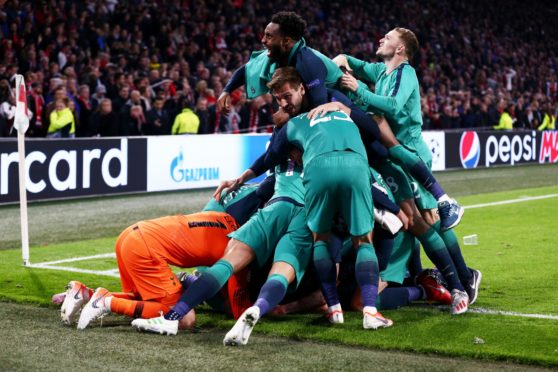
The imminent arrival of Euro 2020 is seriously exciting news for addicts of televised sport.
International football’s second-most prestigious tournament will deliver 51 games across 31 days – all available in glorious terrestrial technicolour.
It is a schedule which will have fans of all nationalities shunning the summer sunshine to dart indoors for access to their glare-free screens.
Not that everyone will be a winner.
Those who don’t like football, but live with people who do, could find themselves requiring some extra strategic planning in terms of meal times and shared social activities.
As much as football has been a saviour for many during the global pandemic, even enthusiasts have had to concede there have been times in the last 18 months when it feels like it was never off TV.
The completion of halted 2019-20 campaigns – in countries other than Scotland that is – followed swiftly by season 2020-21 has taken its toll.
With rest time for players curtailed, muscle injuries have been on the rise, with the news Trent Alexander-Arnold will miss the Euros – and with it Scotland’s Wembley visit – with a thigh injury just the latest reminder that not even the young and the super-fit are invulnerable.
It is a subject that has managers exercised about the welfare of their charges, and Jurgen Klopp and Pep Guardiola have been especially vocal.
We have heard plenty about player overload on this side of the border, too, with Callum McGregor heading into the Euros off the back of a schedule that has had him on the telly more often than the soap operas.
The Celtic and Scotland midfielder always insists he wants to be playing, but it is hard not to watch his recent performances and come to any other conclusion than here is a player who would benefit from a break.
Against that backdrop, it has been surprising to learn the away-goal rule is for the chop.
UEFA have decided it will be scrapped from all their competitions from the start of next season.
Final approval for the rule change is needed from the ruling body’s Executive Committee early next month, but the writing is already on the wall.
The news brings to an end over half-a-century of working practice, with the rule introduced in 1965 to try to encourage away teams to play attacking football at grounds where they would start with a natural disadvantage.
“In the event of a tie, away goals count double,” quickly became the mantra, with commentators and fans alike relishing the extra element of jeopardy it brought to European ties.
Without doubt, it has had its moments – both good and bad.
Spurs’ super-dramatic 3-2 win away to Ajax in the Champions League semi-finals in 2019 is still referred to as The Miracle of Amsterdam.
Beaten 1-0 at home in the first leg, they looked sunk for all money when falling two behind in the first-half of the return in Holland.
Yet when the Lucas Moura scored twice after the break to level the scores on the night, the away goals rule meant Spurs needed just one more goal to clinch a stunning win.
The Brazilian got it – and with it his hat-trick – and fairytale became fact.
The same applied, albeit in more chaotic fashion, to Rangers’ success over Sporting Lisbon en route to their European Cup-Winners’ Cup triumph in 1972.
Taking a 3-2 lead from Ibrox to the Portuguese capital, they went down by the same scoreline to send the contest into extra time.
It finished 4-3 in favour of Sporting, but the Dutch referee, Laurens van Raavens, failed to realise Willie Henderson’s extra-time strike also counted double beyond the regulation 90 minutes, making Willie Waddell’s side the winners.
But the ref insisted the teams went through the drama of a penalty shoot-out. Sandy Jardine, Alex MacDonald and Colin Stein all missed from 12 yards, and Rangers thought they were out.
But alerted to the error, Waddell appealed to UEFA officials and the Light Blues were declared winners.
Anomalies and highlights apart, what is curious about the axing of one of the game’s hardy perennials is the change of practice it will usher in.
Ties level on aggregate will now go to extra time – and penalties if necessary – which is, of course, yet more football.
More highly-charged football, at that, with lots at stake at a time when the players have already been through an hour-and-a-half of high-intensity sport.
Armchair fans could welcome it as yet more of what they want.
But the athletes who put their bodies on the line are entitled to wonder whether it is not a rule change too far.
So the upcoming Euros could be the last time we see England eliminated on penalties.
Oh, well!

Enjoy the convenience of having The Sunday Post delivered as a digital ePaper straight to your smartphone, tablet or computer.
Subscribe for only £5.49 a month and enjoy all the benefits of the printed paper as a digital replica.
Subscribe